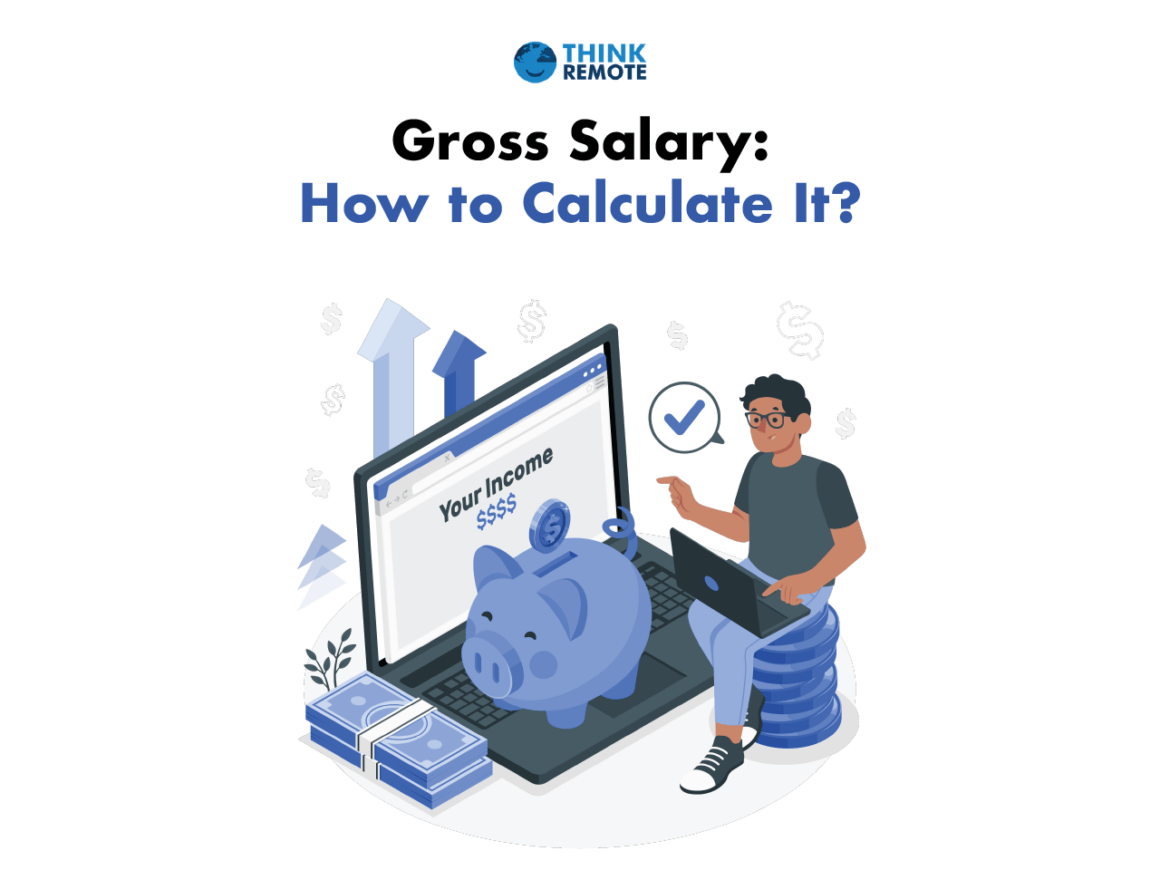Are you looking to work out just how much you’ll earn if you take on that new role? Or are you being asked to provide your gross salary for a mortgage or other finance application? Gross pay is often used as a measure of what repayments you will be able to make by lenders, so it’s a useful thing to know, but if you work multiple jobs, and particularly if you work remotely and get paid in different currencies, calculating it can be complex. Don’t worry; we’re here to help.
What is Gross Salary?
There are at least four different meanings to the word ‘gross’. For example, most of us have used it to describe something forgotten and unpleasant at the back of the fridge.
Gross can also mean ‘very obvious and unacceptable’ (which we hope doesn’t apply to your salary) that can be applied to things like abuse or neglect. As a noun, gross can mean twelve dozen or 144 of something.
But what does gross salary mean? When we define gross salary, though, we are using the definition, ‘without deduction of tax or any other contributions.
So what is meant by gross salary? The simplest gross salary definition is ‘What you get paid before anything gets taken away.’ In other words, it’s what gets advertised to you when you apply for a job rather than the often disappointing amount you see on your first paycheck!
Why Is Gross Different from Net Salary?
Why are two different ways of measuring salary needed? Well, it’s basically because your net earnings (what you actually get paid) can vary, but your gross salary will only change if you change jobs or get a pay review.
Your net pay (also known as ‘take home pay) is the amount that you get paid into your bank account or in your pay packet at the end of the week or month. It’s your gross pay, minus any taxes or other deductions. Deductions might include:
- Pretax deductions like health insurance and retirement plans
- Statutory deductions like federal and state income tax and FICA contributions
- Post-tax deductions like IRA retirement plans and disability insurance
Your net salary can change as these deductions change, for example, if there is a tax rate increase. That’s why finance companies prefer to see your gross pay.
How Can You Calculate Your Gross Salary?
Now we’ve answered the question, ‘What’s gross salary?’, it’s time to think about how we would calculate that. The formula to use is: Basic salary + HRA + Other allowances = Gross Salary. Probably the easiest way to do that is through examples of the different ways you might be paid.
Hourly Rate Gross Salary Example
What is an example of gross salary example?
Let’s say you work a 40-hour week at $20 an hour. So your basic gross salary will be 40 x 20 or $800 per week. If you need to provide that as an annual figure, it would be 800 x 52 or $41 600.00.
If you’ve done four hours of overtime at $25 an hour, that will be an additional $100, bringing your total gross salary to $900 for the week.
If you’re looking to give your gross pay to a finance company, they will likely not count overtime unless it forms part of your contract, as that amount isn’t guaranteed.
Where it Gets Complicated
Calculating your gross salary isn’t overly complicated when you have one job that pays your an annual salary or an hourly rate. It gets a little more complex if you work multiple jobs. You’ll then need to list the gross salaries for all those jobs for your finance provider and add them together to get a total.
If you are paid in more than one currency, that adds another layer of complexity as while your salary might be fixed at £50,000, for example, the exchange rate between the salary you are paid in and your local currency will fluctuate. It’s worth discussing this with your finance company to understand the impact that might have on your application.
Ask for Help
Understanding your earnings can be complicated, and as working options become more flexible, then calculating your gross salary is likely to become more involved. Getting these things right is important, so if you feel you’re struggling, then find an accountant or other qualified person to help you out, so you get things right.






